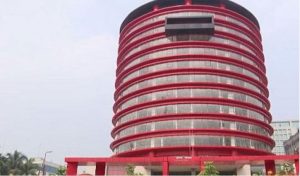The government on Tuesday approved the Delta Plan 2100 aiming to harness the huge potentials of Bangladesh as a Delta country through water resource management, ensuring food and water security and tackling disasters.
The plan, prepared by the General Economics Division (GED) of the Planning Ministry, with assistance from the Dutch government and the World Bank, is expected to boost the country’s GDP growth by another 1.5 percent by 2030.
The approval came at a meeting of the National Economic Council (NEC) held today (Tuesday) at the NEC conference room here with NEC Chairperson and Prime Minister Sheikh Hasina in the chair.
Planning Minister AHM Mustafa Kamal briefed reporters after the meeting.
The plan was prepared in consultation with different stakeholders following 26 studies carried out by local experts. It took three and a half years before the plan was approved.
The short-term measures of the Plan will be implemented by 2030, while the mid-term ones by 2050 and the long-term ones by 2100.
The government will need $37 billion by 2030 for implementing the plan.
Mustafa Kamal said the country could boost its GDP growth by another 1.5 percent by 2030 through implementing the plan.
He called today as the ‘Red Letter Day’ for Bangladesh as well as his ministry since the nearly 100-year plan was approved for the first time in the country.
The minister mentioned that the Netherlands have been greatly benefitted through adopting such a plan as the country has been able to reclaim around 6,000 square kilometres of land in addition to its mainland.
Encouraged by the experiences of the Netherlands, Kamal said Prime Minister Sheikh Hasina had earlier directed the authorities concerned to work out such a plan to tap the maximum potentials of Bangladesh as a deltaic region.
He also said the work is underway to formulate another perspective plan for the year 2021-2041 to transform the nation into a developed one.
State Minister for Finance and Planning MA Mannan, GED member of the Planning Commission Prof Dr Shamsul Alam and Secretaries Concerned were present at the briefing.
To execute the Delta Plan 2100, a high-level Delta Governance Council, led by the Prime Minister, will be formed with the Planning Minister being its vice-president.
The council would give directives and take decisions for implementing the plan.
Besides, a project or operation selection committee, led by a GED member, will be constituted.
The secretaries of the ministries related to the Delta Plan will be the committee members who will select projects and programmes. The committee will also monitor implementation of the projects and programmes.
Under the Plan, 80 projects have been selected for implementation. Sixty-five of the projects will be infrastructural ones while 15 others will be aimed at enhancing institutional capacity, efficiency and research.
The required fund for the 80 projects will come from the government, Green Climate Fund, development partners, foreign direct investment and the private sector.
While talking at the briefing, GED member Prof Dr Shamsul Alam said the Plan highlighted six hotspots, including coastal areas (27,738 square kilometers), Barind and draught-prone region (22,848 square kilometers), haor and flash flood-prone areas (16,574 square kilometers), CHT region (13,295 square kilometers), river region and estuaries (35,204 square kilometers) and urban region (19,823 square kilometers).
These six areas will get the priority in the Delta Plan.
source: UNB




